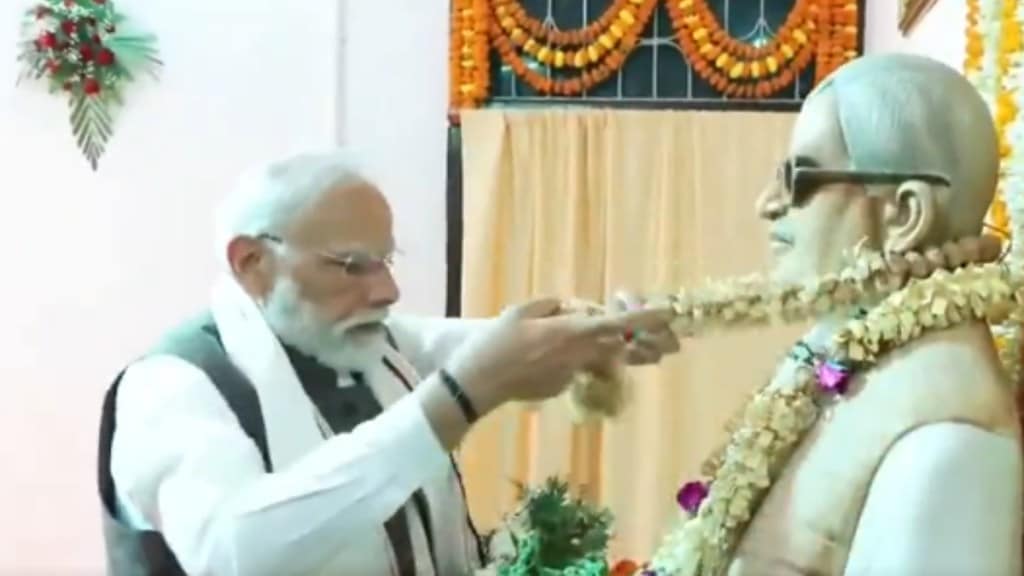Bihar Election 2025: As Prime Minister Narendra Modi kickstarted his poll campaign in Bihar on Friday, Congress leader Jairam Ramesh launched a strong attack on him for visiting Karpurigram, birthplace of socialist icon and former Bihar chief minister late Karpoori Thakur. “Is it not a fact that Karpoori Thakur ji was subjected to the vilest abuse by RSS and Jan Sangh leaders then?” Ramesh said in a lengthy post directly addressed to PM Modi on X.
‘Didn’t Jan Sangh-RSS supporters raise hate-filled slogans against Karpoori Thakur?’
He further added that Thakur in 1978, laid the historic foundation of social justice by providing 26% reservation for backward classes. “Isn’t it true that the ideological predecessors of your party, Jan Sangh and RSS, openly opposed his reservation policy? At that time, didn’t Jan Sangh-RSS supporters raise insulting and hate-filled slogans against Karpoori Thakur on the streets? Didn’t key leaders of the Jan Sangh-RSS faction play an important role in destabilizing and toppling Karpoori Thakur’s government? Will the Prime Minister today apologise on behalf of his ideological predecessors, Jan Sangh and RSS, for that historic mistake?” Ramesh wrote on X.
‘PM Modi’s ‘urban Naxal agenda’ remark is an insult to rights of Dalits and EBCs,’ says Jairam Ramesh
He added that by calling the Congress party’s demand for a caste-based census an “Urban Naxal agenda,” PM Modi indirectly insulted the rights of Dalits, backward classes, Extremely Backward Classes, and Adivasis? “Didn’t your government refuse to conduct the caste census in Parliament (on 20 July 2021) and before the Supreme Court (on 21 September 2021)? Your government deliberately ignored this legitimate demand of millions from the majority of deprived communities for a long time—do you deny this?” Ramesh said.
He went on to ask the PM why he and his “trouble-engine government” didn’t include the Assembly proposal to increase reservations for backward classes, extremely backward classes, Dalits, and Adivasis to 65% in the Ninth Schedule. “Just as the Congress government in 1994 secured Tamil Nadu’s 69% reservation by including it in the Ninth Schedule, why wasn’t Bihar’s 65% reservation given the same protection?,” he asked.
Who is Karpoori Thakur?
Born in 1924, Thakur was well-liked for his widespread contributions to the development of Bihar. He was known for his simplicity, honesty, and strong commitment to social justice. He was also rewarded the Bharat Ratna posthumously in 2024.
Karpoori Thakur holds a special place in Bihar’s politics as a socialist leader who fought for social justice, especially the marginalised. He is best known for introducing landmark reservation to help disadvantaged communities. Thakur served as Bihar’s Chief Minister twice and is remembered for his dedication to the poor and underprivileged through education reforms, ban on alcohol, and progressive policies for women and economically weaker groups.
Karpoori Thakur’s key contributions to Bihar
- Introduction of landmark reservation system: In 1977, when Karpoori Thakur was the Chief Minister of Bihar, he introduced a landmark reservation policy that changed the state’s approach to social justice. His goal was to help historically disadvantaged communities through fair access to education, government jobs, and public services. The plan reserved 12% seats for Extremely Backward Classes and 8% for Other Backward Classes. It also included 3% reservation for women to promote gender equality and 3% for economically weaker sections. This inclusive formula, known as the “Karpoori Thakur Formula,” became a milestone in India’s affirmative action policies and a symbol of equality and empowerment.
- Educational reforms: Karpoori Thakur worked to make education more accessible for poor and backward students. He removed English as a compulsory subject in matriculation exams, believing it created an unfair disadvantage for rural and underprivileged students. He also made primary and middle school education free and opened many schools and colleges in backward regions. His aim was to ensure equal learning opportunities for all, regardless of caste or income. During his tenure, he also enforced a complete ban on alcohol in Bihar, reflecting his belief in social reform and discipline as part of building a progressive society.
- A ‘people-first’ leader: Karpoori Thakur was Bihar’s first non-Congress socialist Chief Minister and a strong believer in equality. He dedicated his life to improving the lives of the poor, backward, and marginalised sections of society. Known for his honesty, simplicity, and people-first politics, he became a symbol of integrity and social commitment. His fight for justice and fair representation still shapes Bihar’s political thinking today. Many political leaders continue to refer to his vision and ideals to connect with the poor and backward communities who saw him as their true “Jan Nayak” or people’s leader.


